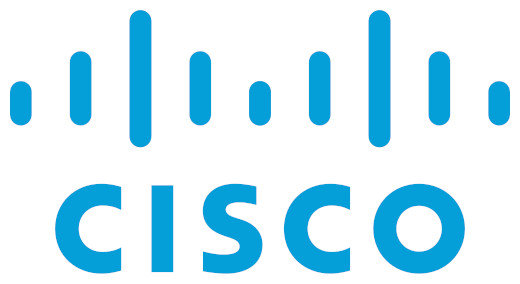Cybersecurity
Undergraduate (Bachelor)
Cybersecurity
Why choose this field of study?

Do you want to deal with broadly understood information security and analyze threats arising from the development of digitization in the future? Do you want to acquire current knowledge about methods and procedures for identifying and combating dangers associated with the functioning of individuals and organizations in the online environment? If so, undergraduate studies in Cybersecurity at the VIZJA University are something for you! With us, you will delve into a wide range of issues related to cybersecurity and gain practical skills that will allow you to professionally shape the directions of information transformation and set standards implemented by IT professionals.
The study program covers topics from various fields such as law, social communication, sociology, and criminology, as well as computer science subjects, for example, programming basics and network technologies, which will allow you to understand the practical aspects of the issues. Throughout your education, you will become familiar with and comprehend critical areas of information security, types of threats in cyberspace, and the latest methods of preventing illegal practices. You will also participate in numerous practical activities such as workshops, exercises, and laboratories, where you will develop the necessary skills for your future work. The VIZJA University also offers separate engineering studies dedicated to candidates who wish to specialize in practical IT skills – see: Cybersecurity (engineering studies) in the field of Computer Science.
Cybersecurity (undergraduate) - what sets us apart?
- You will gain interdisciplinary knowledge of cybersecurity from the perspective of social sciences.
- Instead of a written diploma thesis, you will carry out a social project on a topic of your choice.
- You will gain practical skills and learn to work with the project method.
- You will complete valuable apprenticeships and learn about specific employment prospects for graduates.
- You will learn from VIZJA University lecturers with extensive practical and didactic experience.
- You will study in an international, unique atmosphere! (we are the leader among universities in the Internationalization category in the “Perspektywy” ranking).
 Cisco Networking Academy – supporting modern education in cybersecurity
Cisco Networking Academy – supporting modern education in cybersecurity

What will you gain from Cisco courses?
- awareness of threat mechanisms and ways to mitigate risk
- practical exercises in configuration and the basics of securing environments
- the opportunity to gain additional digital skills with progress verification
- the ability to analyse incidents and communicate in collaboration with IT teams
Cybersecurity - what can you do after graduation?

As a graduate of Cybersecurity at VIZJA University, you can develop in various specialized positions related to maintaining online security. Companies and institutions from many industries are looking for, among others:
- cybersecurity analysts who plan and implement appropriate procedures;
- network infrastructure auditors who analyze the systems of a given organization on an ongoing basis and recommend possible changes;
- consultants who analyze the latest trends and regulations in the area of cybersecurity and train companies in this area.
The demand for specialists in the Cybersecurity industry is growing along with the dynamic development of digitization, which is why you will find employment wherever it is crucial to ensure the security of data stored in the clouds, during online transactions or on e-mail servers – e.g. in public administration bodies, various types of corporations, consulting companies or IT systems security agencies.
This program
is for you if:
You are aware of the groundbreaking role of the Internet in social life and understand the opportunities as well as the threats associated with the development of digitization.
You want to acquire broad specialized knowledge, supported by practical skills, including fundamentals of computer science.
You would like to work in the field of cybersecurity, focusing on projects, threat analysis and trends, conducting training, and implementing procedures and recommendations.



Admission rules and regulations
Note: important information for 2025 candidates
Please read carefully the application procedures in line with the changes introduced by the Polish Ministry of Science and Higher Education in 2025.
Programme and structure of studies
Undergraduate studies
(bachelor’s degree)
The bachelor’s degree program offers interdisciplinary knowledge that covers a range of cybersecurity issues in the context of social sciences. Students of the field of study learn to recognize the threats resulting from the development of digitization and effectively implement network security mechanisms for private individuals and enterprises, but also state authorities and institutions. The program also includes IT subjects that allow students to thoroughly understand the essence and types of threats, such as the basics of programming or the architecture of computer systems. The studies end with a bachelor’s degree in the field of Cybersecurity.
FIRST YEAR OF STUDY
The first year of studies is dominated by introductory subjects and general academic classes, the purpose of which is to provide students with the basics of knowledge and to develop the competences necessary for future specialists.
SEMESTER I
| Subject name | Cummulative amount of ECTS points | Cummulative amount of hours (FT/PT) |
|---|---|---|
| Health and Safety | 0 | 8/8 |
| Academic Skills | 1 | 15/8 |
| Introduction to State and Law | 5 | 30/24 |
| Introduction to Philosophy | 5 | 35/20 |
| Basics of Social Communication | 4 | 30/24 |
| Intellectual Property | 5 | 30/24 |
| Introduction to Cybersecurity | 5 | 30/16 |
| Basics of Economics | 5 | 30/24 |
SEMESTER II
| Subject name | Cummulative amount of ECTS points | Cummulative amount of hours (FT/PT) |
|---|---|---|
| Foreign Language (Elective) | 2 | 30/16 |
| Research Methodology | 4 | 30/16 |
| Jurisprudence | 3 | 30/24 |
| Basic Sociology | 3 | 30/16 |
| Public Administration | 4 | 30/24 |
| Project Management | 3 | 30/16 |
| International Political Relations | 3 | 30/24 |
| National Cybersecurity Policy/Information Society Security Issues (Elective) | 3 | 30/16 |
| Introduction to Security Sciences | 5 | 60/32 |
SECOND YEAR OF STUDY
The second year of studies continues major classes and develops practical skills in the field of information engineering or information security management. From the third semester of studies, subjects aimed at transferring basic knowledge and skills in the field of computer science are also introduced. In the second year, students also start their apprenticeships.
SEMESTER III
| Subject name | Cummulative amount of ECTS points | Cummulative amount of hours (FT/PT) |
|---|---|---|
| Foreign Language (Elective) | 2 | 30/16 |
| Crisis Management | 4 | 60/32 |
| Security of Metropolises and Local Communities | 3 | 30/16 |
| Information Security Management | 3 | 30/16 |
| State Security Structures | 3 | 30/16 |
| Combating Disinformation on the Internet | 3 | 30/16 |
| Introduction to Programming | 5 | 75/40 |
| Internship (Elective) | 7 | 180/180 |
SEMESTER IV
| Subject name | Cummulative amount of ECTS points | Cummulative amount of hours (FT/PT) |
|---|---|---|
| Foreign Language (Elective) | 2 | 30/16 |
| Information Engineering in Public Space | 3 | 30/16 |
| Information Security in Business / Information Security in Government Administration (Elective) | 3 | 30/16 |
| Personal Data Protection - National and International Perspectives | 3 | 30/16 |
| Risk Management in Politics / IT Risk Management (Elective) | 3 | 30/16 |
| Cybersecurity Systems and Technologies | 4 | 45/24 |
| Computer Systems Architecture | 5 | 60/32 |
| Internship (Elective) | 7 | 180/180 |
In the fourth semester of study, the student can choose one of each of the two subjects offered in groups: – Information security in business transactions or Information security in government administration; – Risk management in politics or IT risk management.
The number of registered students determines whether a course will be launched.
THIRD YEAR OF STUDY
As part of the third year of studies, classes on practical skills necessary for a cybersecurity specialist are continued. Thanks to the module of elective courses, students can focus on specialist issues that lie in their area of particular interest. Starting from the fifth semester, students start working on a social project, which replaces the obligation to prepare a written bachelor thesis in the field of Cybersecurity at VIZJA University.
SEMESTER V
| Subject name | Cummulative amount of ECTS points | Cummulative amount of hours (FT/PT) |
|---|---|---|
| Foreign Language (Elective) | 3 | 30/16 |
| Elements of Cryptography | 3 | 45/24 |
| Criminal Behavior in Cyberspace | 2 | 30/16 |
| IT Network Security Audit | 4 | 60/32 |
| Network Technologies | 4 | 60/32 |
| Operating Systems | 4 | 60/32 |
| Internship (Elective) | 7 | 180/180 |
| Project Preparation Methodology | 3 | 30/16 |
SEMESTER VI
| Subject name | Cummulative amount of ECTS points | Cummulative amount of hours (FT/PT) |
|---|---|---|
| Cybersecurity in the Public Sector / Cybersecurity in International Organizations (Elective) | 3 | 30/16 |
| Cyberculture in the 21st Century / Legal Framework for White and Black Intelligence (Elective) | 3 | 30/16 |
| Crime on the Internet / Online Safety for Children and Youth (Elective) | 3 | 30/16 |
| Contemporary Political Terrorism | 3 | 30/16 |
| Internet Exploration Techniques | 3 | 30/16 |
| Information and Hybrid Warfare / Geoinformation and Geolocation (Elective) | 3 | 30/16 |
| Internship (Elective) | 7 | 180/180 |
| Social Project | 5 | 30/16 |
In the sixth semester of study, the student can choose one of each of the two courses offered in groups: – Cybersecurity in local government or Cybersecurity in international organizations; – Cyberculture in the 21st century or Legal framework of white and black intelligence; – Online crime or Online security of children and adolescents; – Information and hybrid warfare or Geoinformation and geolocation.
The number of registered students determines whether a course will be launched.
The content of the study program may change as a result of efforts to improve the quality of education and adapt the teaching offer to the current challenges of the labor market. Each change is approved by the University Senate and introduced with the aim of preparing students for their future careers in the best possible way.
Tuition fees
Fixed tuition - flexible payments
By choosing to study at VIZJA University, you can be sure that the tuition fee will not change throughout the duration of your studies. You can pay the tuition fee once for the entire year of study or spread over a semester payment. This allows you to decide how you want to plan your expenses.

Fees (academic year 2025/2026)
EU&OTHER COUNTRIES GROUP
| Year of study | Annually | Per semester* |
|---|---|---|
| I | 2900 € | 1600 € |
| II | 2900 € | 1600 € |
| III | 2900 € | 1600 € |
| IV | 2900 € | 1600 € |
*Semester payment is possible from the second year of studies.
OTHER COUNTRIES
| Year of study | Annually | Per semester* |
|---|---|---|
| I | 3900 € | 2100 € |
| II | 3900 € | 2100 € |
| III | 3900 € | 2100 € |
| IV | 3900 € | 2100 € |
*Semester payment is possible from the second year of studies.
EU and other countries group
This group includes citizens of the countries member states of the European Union and the following countries citizens: Azerbaijan, Belarus, Bosnia and Herzegovina, Montenegro, Georgia, Kazakhstan, Kosovo, Kyrgyzstan, Latin America, Macedonia, Moldova, Norway, Russia, Serbia, Tajikistan, Turkey, Turkmenistan, Ukraine, Uzbekistan.
Other countries
The citizens of all the remaining countries.
Study in Polish!
Do you want to study at VIZJA University in Polish? It is possible! We have prepared a special program for international students to acquire the skills necessary for active study in Polish and for academic, social and everyday life in Poland.
The Comprehensive Polish Language Program for International Students is:
- part of The VIZJA University Foundation Program, which is a comprehensive preparation for starting regular Bachelor's or Master's studies in Polish at VIZJA University
- a course aimed at two groups of international students: students with knowledge of a Slavic language (Russian, Ukrainian, Czech etc.) and students without prior knowledge of any Slavic language
- a chance for immersion in Polish society and culture, authentic experience of life in Poland and broad career prospects on the Polish labour market
More details coming soon!
Scholarships - easier than you think

While studying at VIZJA University, you can take advantage of a wide range of financial support from the state budget and European funds, as well as benefit from special discounts with VIZJA University discount program
You can submit most scholarship applications quickly and easily through your online account.
In the academic year 2023/2024, VIZJA University awarded 800 Rector’s Scholarships, ranging from PLN 400 /month to PLN 1000 /month, depending on the average or achievements. For outstanding sport, artistic or scientific achievements, the Scholarship Committee awarded scholarships of PLN 600 /month.
Detailed information on the possibility of applying for the Rector’s Scholarship is available in the dean’s system.
A sports scholarship may be awarded to a student who excels in sport achievements at least national level. In addition we also encourage our students to take part in additional support programs- eg. the National Academic Representation.
Young sportsmen can count on financial support in the amount of PLN 600 /month.
Detailed information on the possibility of applying for sports scholarship is available in the dean’s system.
A scholarship for people with disabilities may be awarded to a student who has a disability certificate, a disability degree certificate, a ZUS certifying physician’s certificate, a disability group certificate or a certificate of permanent or long-term incapacity to work on a farm.
In the 2023/2024 academic year, depending on the degree of disability, 350 scholarships for people with disabilities were awarded, ranging from PLN 1700 /month to PLN 1900 /month.
Detailed information on the possibility of applying for a scholarship for people with disabilities is available in the dean’s system.
The allowance is a form of emergency financial assistance. Any student who found himself temporarily in a difficult life situation resulting from random events beyond the student’s control can apply for it.The allowance may be granted twice in one academic year, and the allowance is not granted twice for the same random event.
In 2024, we granted 51 allowances for a total of PLN 255 000. The allowances, depending on the student’s situation, were paid in the amount of PLN 2,000 to PLN 5,000 at a time.
Detailed information on the possibility of applying for the allowance is available in the dean’s system.
2023/2024 academic year
800 Rector’s Scholarships
51 allowances
350 scholarships for people with disabilities
12 500 000 PLN was spent in 2023/2024 on scholarships
PLN 1,890,289.35 was spent in 2019/2020 on scholarships
PLN 2,911,662.50 was spent in 2020/2021 on scholarships
PLN 4,158,177.00 was spent in 2021/2022 on scholarships
PLN 7,829,950.00 was spent in 2022/2023 on scholarships
Rector’s Scholarship – highest average: 5,44





